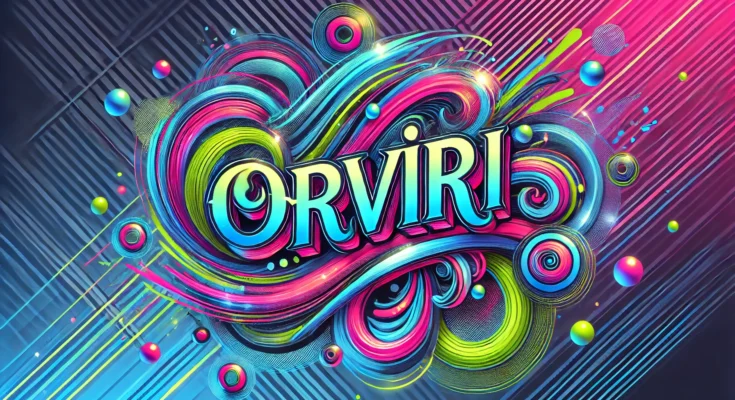In an era where globalized culture often blurs the lines between traditions, customs, and languages, some terms remain distinct, preserving a deep cultural connection to their roots. One such term is Örviri. If you’ve encountered this word, chances are you’ve experienced it in rich cultural, historical, or linguistic discussions. But what exactly is Örviri, and why does it hold such significance?
In this article, we will delve into the meaning of Örviri, its cultural importance, and the various ways it manifests in society. Whether you’ve encountered this term through folklore, language studies, or contemporary debates, this exploration will help clarify its relevance and offer insights into its importance across different fields.
Contents
- 1 The Meaning of Örviri: A Closer Look
- 2 Linguistic Origins
- 3 Modern Interpretations
- 4 Cultural Significance of Örviri
- 5 Örviri Across Cultures: A Global Perspective
- 6 European and Mediterranean Traditions
- 7 Connections to Indigenous Practices
- 8 The Relevance of Örviri in the Modern World
- 9 Örviri in Contemporary Society
- 10 The Role of Social Media and Technology
- 11 Conclusion
- 12 FAQ
The Meaning of Örviri: A Closer Look
At its core, Örviri is a term rooted in ancient traditions, primarily from specific regions that have preserved distinct linguistic and cultural elements. The meaning of Örviri is not uniform across all cultures that reference it. To fully understand this term, we need to break down its origins, linguistic connections, and how its meaning has evolved.
Linguistic Origins
Örviri traces its roots to the old languages spoken in certain European and Mediterranean regions. The word is often associated with ancient rituals, social structures, and mythologies. While the precise etymology is debated among linguists, it is usually linked to concepts of heritage, legacy, and familial bonds.
In many traditions, Örviri represents an unbreakable connection to ancestors or ancestral practices. The word may have originated in a ritual or ceremony that involves honoring one’s forebears, maintaining traditions, or protecting cultural identity. This sense of reverence towards one’s ancestry is fundamental to understanding Örviri.
Modern Interpretations
Over time, the term Örviri has taken on new meanings, depending on the region or cultural context in which it is used. In contemporary settings, it often symbolizes a commitment to preserving ancient traditions in the face of modern challenges. It can also refer to ensuring that cultural practices are passed down through generations, thus maintaining the integrity of a community’s historical identity.
The symbolism of Örviri:
In modern interpretations, Örviri can symbolize anything from family legacies and heritage to spiritual or philosophical commitments to preserving ancient wisdom.
Cultural Significance of Örviri
The Role of Örviri in Folklore and Traditions
Throughout history, many societies have emphasized honoring one’s ancestors. This is often reflected in folk practices, rituals, and festivals celebrating heritage and connection to past generations. Örviri plays a significant role in many of these traditions, acting as a cultural touchstone and a form of reverence.
In specific communities, passing down specific rites, stories, and practices that form the bedrock of that community’s identity is essential. Örviri ensures that these traditions are kept alive. Protecting and preserving the culture is considered a personal or familial duty and a collective responsibility.
Örviri in Spiritual Practices
In spiritual contexts, Örviri is often intertwined with religious rituals that celebrate the connection to the divine and the ancestors. In some faiths, honoring the ancestors through Örviri-related practices is maintaining the spiritual well-being of both the living and the deceased.
Certain ceremonies might involve offerings, prayers, or symbolic gestures meant to express gratitude or seek blessings from the spirits of the ancestors. This religious aspect of Örviri underscores its profoundly spiritual dimension, suggesting that the term is cultural and metaphysical in its significance.
Örviri Across Cultures: A Global Perspective
While the word Örviri may have originated in specific regions, its essence resonates with many cultures across the globe. Concepts similar to Örviri can be found in various forms, reflecting a universal desire to preserve heritage and pass down knowledge to future generations.
European and Mediterranean Traditions
In regions such as the Balkans, the Mediterranean, and parts of Eastern Europe, long-standing practices are dedicated to honoring one’s ancestors. Here, the idea behind Örviri is more than a cultural tradition; it is often linked to communal identity and survival. Keeping the ancient ways alive through oral history, rituals, and celebrations is vital in these cultures.
For example, some Mediterranean societies hold annual feasts or ceremonies dedicated to their ancestors, ensuring that the stories of their forebears are passed on. Similarly, in parts of Eastern Europe, elaborate commemorations elaborate commemorations involve music, dance, and food, all of which serve as acts of remembrance.
Connections to Indigenous Practices
A similar sentiment exists in Indigenous communities across North and South America, Africa, and Oceania. Many indigenous groups value elders’ teachings and preserving ancient knowledge. These cultures often practice Örviri-like traditions that involve maintaining a connection to the land, their ancestors, and the cycles of nature.
For these communities, preserving the teachings of the past is not just a matter of cultural pride—it is considered essential to the group’s survival and future prosperity. The passing down of oral histories, the conservation of sacred sites, and the practice of rituals are all expressions of this commitment.
The Relevance of Örviri in the Modern World
While ancient customs and languages often risk disappearing in the fast-paced modern world, the concept of Örviri remains remarkably relevant today. As the world becomes increasingly interconnected, there is a growing movement to protect cultural practices and languages that have been marginalized or forgotten.
Örviri in Contemporary Society
In today’s world, Örviri is more than just a relic of the past—it ensures cultural survival. As people from different cultures interact and migrate, safeguarding identity is strongly necessary. By embracing Örviri, modern communities can actively work towards creating a sense of belonging and continuity.
Educational institutions, museums, and cultural organizations increasingly focus on preserving heritage, with many offering programs or initiatives designed to educate younger generations about the significance of maintaining traditions like Örviri. Through storytelling, arts, and even digital archives, societies ensure that ancient wisdom is not lost in the technological age.

The Role of Social Media and Technology
In the age of social media, platforms like YouTube, Instagram, and TikTok have become virtual hubs for cultural expression. These platforms allow individuals to share stories, songs, and traditions, ensuring that practices like Örviri find new life in digital formats.
Numerous online communities are dedicated to preserving ancient cultures, and these digital spaces serve as modern-day gathering points for those interested in maintaining their ancestral legacies. Technology’s role in transmitting traditions is more important than ever, offering new ways to engage with ancient customs.
Conclusion
The term Örviri is more than just a word; it encapsulates a deep-seated commitment to preserving heritage, honoring the ancestors, and ensuring that cultural legacies live on. Whether it’s through folklore, spirituality, or community-driven efforts, the importance of Örviri transcends geographical borders and connects cultures worldwide. In an age where traditions face the threat of fading into obscurity, the concept of Örviri serves as a powerful reminder of the value of remembering where we come from.
As societies evolve, embracing practices like Örviri ensures that we remain anchored to our roots, even as we march toward the future. Through these acts of preservation, we safeguard our identities and the identities of the generations that will come after us.
FAQ
What is the primary meaning of Örviri?
Örviri refers to a cultural and spiritual tradition that honors ancestors and preserves cultural heritage. Its meaning can vary depending on the region, but it often involves rituals, stories, and practices meant to keep ancestral connections alive.
Is Örviri practiced today?
Yes, Örviri remains an essential practice in various cultures today, with modern adaptations that ensure these traditions are passed on through generations.
How does Örviri impact spiritual practices?
In many cultures, Örviri plays a crucial role in spiritual practices by connecting people to their ancestors and seeking blessings or protection through rituals.
Where can I find Örviri traditions?
Örviri can be found in various parts of Europe, the Mediterranean, and indigenous cultures worldwide, each with its unique interpretation of ancestral reverence.
How is technology affecting the preservation of Örviri traditions?
Technology is vital in preserving Örviri by enabling digital archives, online communities, and social media platforms where traditions can be shared and celebrated.
Why is it important to preserve traditions like Örviri?
Preserving traditions like Örviri helps maintain a sense of cultural identity and continuity, ensuring that future generations remain connected to their past.



